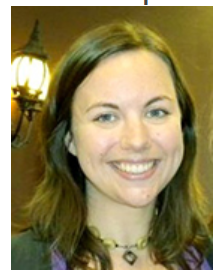(一)研讨座谈会
座谈题目:Aging Studies and Interdisciplinary Studies on Population, Health and Human Well-being
座谈时间:2019年4月19日(周五)下午14:30-16:00
座谈地点:公管学院实验中心三楼研讨室
座谈嘉宾:Christine A. Mair
座谈对象:西安交通大学公共政策与管理学院、人口与发展研究所/政策研究中心、老龄与健康研究中心教师,博士生
座谈嘉宾简介:

Christine Mair is an Associate Professor of Sociology in the interdisciplinary Department of Sociology, Anthropology, and Health Administration & Policy at the University of Maryland, Baltimore County (UMBC) and holds a secondary appointment in the Department of Epidemiology and Public Health in the School of Medicine at the University of Maryland, Baltimore (UMB). As a sociologist and social gerontologist, her work seeks to document cultural variation in the relationship between social environments and health (e.g., family and friend networks), with particular emphasis on risk and resilience in disadvantaged contexts in the United States, as well as countries that are underrepresented in American journals. Her collaborators include scholars from psychology, social work, criminology, economics, epidemiology, and occupational health sciences and her work appears in various outlets includingSocial Forces, Social Science & Medicine, Journal of Gerontology: Social Sciences, The Gerontologist, Health & Place, Cancer,andJournal of Palliative Medicine.
(二)学术讲座报告
讲座题目:Alternatives to Aging Alone?: “Kinlessness” and the Potential Importance of Friends
讲座时间:2019年4月19日(周五)下午16:10-18:00
讲座地点:公管学院实验中心学术厅
讲座嘉宾:Christine A. Mair
讲座简介:Increasing numbers of older adults cross-nationally are without children or partners in later life and therefore likely have greater reliance on non-kin (e.g., friends). This pattern may be particularly pronounced in country contexts that emphasize friendship. This paper hypothesizes that those who lack kin (e.g., children, partners) and/or who live in countries with a stronger emphasis on friendship have more friends in their networks. While these hypothesized patterns are consistent with interdisciplinary literatures, they have not been tested empirically and therefore remain overlooked in current “aging alone” narratives. This study combines individual-level data from the Survey of Health, Ageing, and Retirement in Europe (SHARE, Wave 6) with nation-level data from the European Values Survey (EVS) to estimate multilevel negative binomial models exploring number of friends among those aged 50+ who lack kin across 17 countries. Older adults who lack kin or whose kin are unavailable report more friends in their networks, particularly in countries with a higher percentage of people who believe that friends are “very important” in life. This paper challenges dominating assumptions about “aging alone” that rely heavily on lack of family as an indicator of “alone.” Future studies of “kinlessness” should consider the extent to which friendship is correlated with lack of kin, particularly in more socioeconomically developed nations. Previous research on “aging alone” may have overestimated risk in more privileged countries that already emphasize friendship, but underestimated risk in family-centered countries where “kinlessness” and alternative sources of support are less common.